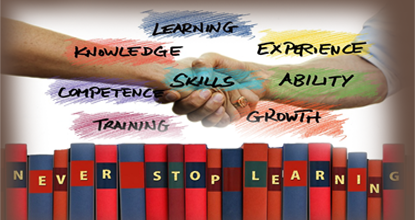Relaxation Techniques
Relaxation promotes physiological reactions that involve your parasympathetic nervous system, the division of your nervous system in control when you are relaxed. When you activate your parasympathetic nervous system, you put the brakes on stress hormones like adrenaline and cortisol and the damage they do to your health when chronically secreted. Relaxation slows your heart rate, reduces your blood pressure, relieves tension and decreases the effects of stress on your mind and body.
Relaxation techniques are helpful tools for coping with stress and promoting long-term health benefits by quieting the mind and slowing down the body. Learning the relaxation techniques will help you counter the ill effects of the fight-or-flight response and will help you to create feelings of being calm and in control. Relaxation techniques can help you cope with everyday stress and with stress related to various health problems and pain.
The relaxation response can be developed through a number of techniques including autogenic relaxation, yoga, meditation, deep breathing, progressive muscle relaxation, guided imagery, visualization, repetitive prayer and many others. Relaxation techniques are now a recommended treatment for many stress-related disorders.
Here are a handful of ideas for furthering your experience with relaxation:
Decide what kind of relaxation you want - Figuring out what kind of relaxation you want and plan a relaxation that will charge you, not increase your stress. Think about something you always wanted to do and enjoy the moment you have.
Being in the moment - In our always connected electronic world, it's becoming more difficult to totally disconnect, relax and recharge or enjoy the moment. It is very important to turn off your technology while you are relaxing and taking mental health break.
Give yourself a breather - Take a day or two off to disconnect from work or home stresses and enjoy doing things you like. Don't set an alarm clock; wake up when your body is rested and ready to get up.
Start your day in a relaxed state - Begin your day by meditating or do some deep breathing to calm and centre yourself. Look around at your surroundings and consciously enjoy them.
Find your balance - Yoga, meditation and deep breath exercises are tools that many people use to tune into their bodies and relax. They don't require special equipment and encourage participants to check in with their physical states. Another great thing about this type of exercises is that you can do them anywhere (at home, at work, even in your car) for as little as five or ten minutes to start. Proper circulation encouraged by deep breathing exercises can help remove waste from your tissues. Also, oxygen exchange becomes more efficient in the lungs.
Browse Pages:

Did You Know?
People from all age groups benefit from relaxation and meditation.
Regular practice of relaxation and meditation will help you to manage symptoms of anxiety disorders, asthma, depression, cancer, heart disease, high blood pressure, pain, sleep problems and can help reduce feelings of loneliness and increase health in seniors.
Meditation helps you start paying attention to the connection between your mind and body.
Meditation can be practiced both on its own and as a component of some other therapies, such as yoga, tai chi, and qi gong.
Yoga and two practices of Chinese origin -- tai chi and qi gong -- are sometimes called “meditative movement” practices. All three practices include both meditative elements and physical ones.
Deep breathing appears to stimulate the vagus nerve (which is the longest nerve of the autonomic nervous system in the human body and an important part of parasympathetic nervous system), which works to control muscles that regulate breathing, circulation of blood and many other functions you normally take for granted.
Love is powerful. Find more chances to love and give your love to others. You'll be surprised to see how much love is returned to you.
Muscular tension in the neck and shoulder area is a common physiological manifestation of psychological and emotional stress.
Stress is the body's response to anything we perceive as dangerous, demanding or demoralizing.
"It's not always easy to prioritize yourself with all the other priorities you juggle in a day,
but it is important to know your limitations and take time to relax." ~ Knowledgefun.com
Coping with Stress
People are under more stress than ever, experts say, and it's certainly not heart-healthy. How you respond to it is what determines whether you become totally stressed out or you can manage it and maintain your serenity. For the stress you can't avoid, develop a range of stress-management techniques and strategies. Here are some ways to relieve stress:
Take a moment to relax. Sit in a comfortable chair and practice deep breathing for 5 to 10 minutes. Stress is most damaging if it's unrelenting. Even a few moments of relaxation, mini breaks, stretching, walking or talking with a friend -- can help.
Visualize your happy place. Visualize a relaxing, peaceful place and imagine yourself experiencing it as vividly as possible; you might "hear" the soothing sound of a waterfall or "feel" a gentle breeze on your skin. Stay there as long as you can.
Talk it out. Poor communication is often a source of stress. If you have concerns about your work load, your school, your job, your family, your children or your partner, discuss them.
Exercise helps. Exercise strengthens muscles in your body, including your heart, and improves your circulation so your body can withstand stress. Aerobic activities (which, depending on your fitness level) can include tennis, volleyball, running, swimming and walking are ideal.
Make a social connections. Not having others to talk with only adds to the stress in your life, and can even lead to depression. It is good idea to become involved in church, social or volunteer activities.





